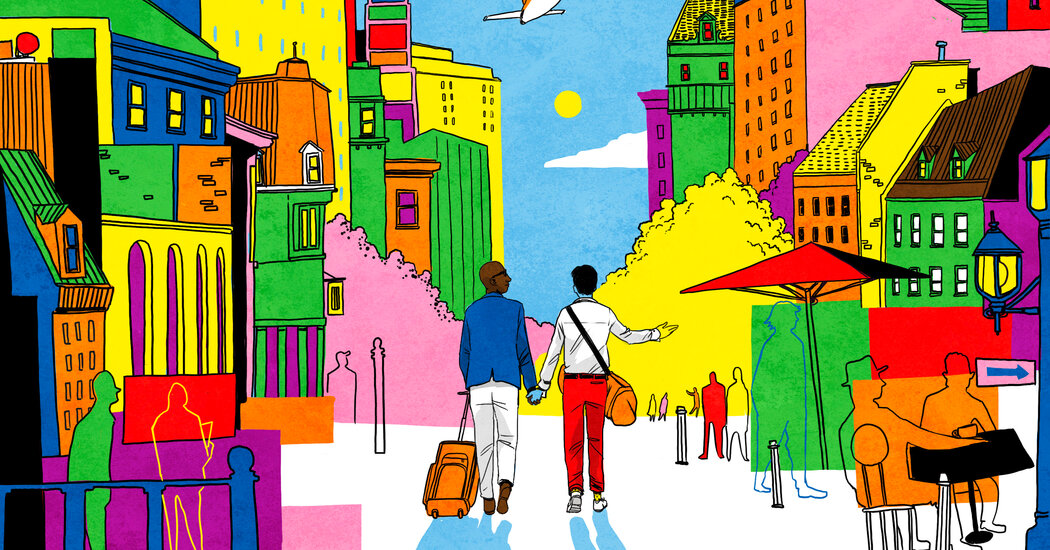
Next came the trip I made with my first boyfriend to Montreal. Three decades later, I recall that on that long-ago summer morning we proceeded north from Pittsfield in his Volkswagen, crossed the Canadian line and drove into the city. We climbed Mount Royal for a view of its namesake metropolis and wandered through the McGill University campus. After we’d checked into a hotel and sat down in a restaurant without anyone giving us a second look, I wondered if I’d been too pessimistic about the world and a gay kid’s future in it. On the drive home we listened to the Pet Shop Boys. I loved their London-centered songs, even if I couldn’t appreciate the urban geography — the West End, King’s Cross — they celebrated. Nor could I have conceived that one day I might move to London, fly airliners from the city, or have a first date there (a springtime walk through a leafy park) with my future husband.
Finally, in college, my fascination with Japan led me to study its language and, one summer, to work in Tokyo. My college teacher put me in touch with a former student, Drew Tagliabue, who lived there with his partner. When I met them for dumplings one evening, I marveled at the diminutive dimensions of one of their favorite restaurants in the largest city that has ever existed, and at lives lived more freely than I had imagined possible. That summer, Drew — who later became the executive director of PFLAG NYC — New York’s “partnership of parents, allies, and LGBTQ+ people working to make a better future for LGBTQ+ young people” — gave me a collection of E.M. Forster, in which I found the words that remain with me as a traveler today: “only connect …”
Armchair L.G.B.T.Q. travelers, of course, can hit the proverbial road with the many writers whose words and worldviews were shaped by journeys. Consider James Baldwin in Paris, Christopher Isherwood in Berlin, and Elizabeth Bishop, who broke the heart of a boy from Pittsfield and later lived with an architect named Lota near Rio de Janeiro. Some of the loveliest stories I know — of the ways in which travel may lead to self-discovery and new forms of community — take place in the San Francisco (“nobody’s from here”) of Armistead Maupin’s “Tales of the City” novels.
Like many Pittsfield folks, I’m inspired by the wayfaring spirit of Herman Melville, who wrote “Moby-Dick” in my hometown. Whatever the truth of Melville’s sexuality — as Andrew Delbanco notes in “Melville: His World and Work,” it’s not easy to separate the tantalizing clues from the response of “gay readers who find themselves drawn to him” — something impelled him to set out for the open ocean and the wonders of distant cities. Born in New York, he wrote easily of Liverpool, Rome and London, and of the turrets of Jerusalem, the dome-obscuring mists of Constantinople, and “the Parthenon uplifted on its rock first challenging the view on the approach to Athens.”




